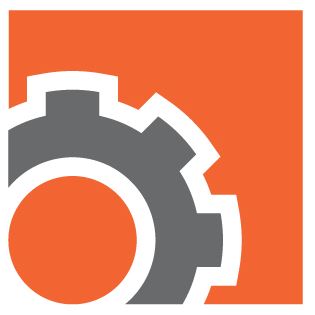Title Page
-
Client / Site
-
Conducted on
-
Location
-
Prepared by
-
Scan folder qr-code
Machine Specifications
-
Machine Make
-
Machine Model
-
Serial Number
-
Client Fleet Number
-
Registration
-
Overall Machine Photo
External
-
Attachments Fit for Purpose, e.g. bucket size, etc.
-
Compliant Quick Hitch with Positive Lock
-
Anti-Drop Valves Present (or warnings present, if not certified for lifting)
-
Safe Access, i.e. Steps, Guardrails, and Handrails Fitted
-
Amber Beacon
-
Brake Lights & Turn Signals
-
Headlights, Tail Lights, & Clearance Lights
-
Rear Reflectors
-
Rear & Side Reflective Tape
-
Battery Isolation Switch - Key Lockable
-
Emergency Stops
-
Load Indicator Visible to Exterior (typically applicable to cranes)
-
Mechanical Trailer Cover (typically applicable to trucks and trailers)
-
Self-supporting Safety Prop Permanently Attached (typically applicable to trucks, for tip decks and cabs)
-
Central Lubrication Station
-
Ground Accessible Refuelling Point
-
Slew &/or Movement Limiting Devices (typically applicable to cranes)
-
Harness Anchorage (typically applicable to mobile elevating work platforms)
-
Guarding (lockable door and/or limit switch and/or guarding over parts)
-
Wheel Chocks (for rubber tyred equipment)
-
3 Points of Contact Decal
-
Fire Extinguisher Decal
-
First Aid Kit Decal
-
Hearing Protection Decal
-
Articulation Joint Crush Hazard Decal
-
Working Load Limit Clearly Visible (Plate or Decal)
-
Electrical Hazard Plate (typically located at machine power plant)
-
Rated Capacity (kg or T) Decal (typically applicable to cranes)
-
Confined Space Decal (typically applicable if whole body access is through a single point only)
In Cab
-
Rear Vision Mirror(s)
-
Operator Visual Aids (e.g. CCTV, additional mirrors, etc.)
-
Horn
-
Reverse Alarm
-
Travel Alarm (supersedes reverse alarm)
-
3" Seat Belt Fitted and in Good Condition
-
ROPS as required (negates need for TOPS)
-
Roll-Over Warning - Wear Seat Belt Decal
-
TOPS as required
-
FOPS / Operator Guard as required
-
Neutral Start
-
Quick Hitch Switch protected
-
Lifting Point Certification (typically applicable to excavators and loaders)
-
Tie Down Eye Certificate (if not factory fitted)
-
Machine Specific SWMS or Operators Instructions/Manual
-
NZ: Design Verification / Aus: Design Registration (applicable to cranes)
-
NZ: Certificate of Inspection / Aus: Item Registration (applicable to cranes)
-
Maintenance and Service History/Records, as per OEM & Applicable Standards
-
Load Lifting Chart (applicable to cranes and excavators fitted with lifting points)
-
Quick Hitch Operating Instructions
-
Log Book
-
Plant Specific and OEM derived Pre-start Criteria
-
NZ: Registration/COF / Aus: Conditional Registration
-
UHF Radio
-
Fire Extinguisher Fitted and Charged
-
Fire Suppression System (Built in)
-
First Aid Kit Fitted
-
Plant Specific Risk Assessment Required
-
Emergency Exit and Implement in Place
-
Rated Capacity Limiter (typically applicable to cranes)
-
Emergency Steering (in case of hydraulic, electrical, or other system failure)
-
Hazard/Proximity Detection System (not dependent on operator vision, e.g. radar)
-
Smart Alarm (supersedes reverse and travel alarms)
-
Interlocked Seat Belt
-
Hydrostatic Drive: designed fail-to-safe
-
Left Hand Drive Decal
-
Dual Control Decal
-
Overhead Power Line Clearance Decals
-
Hydraulic Steering Warning Decal
-
GVM and Tare Decal (typically applicable to road-going vehicles)






